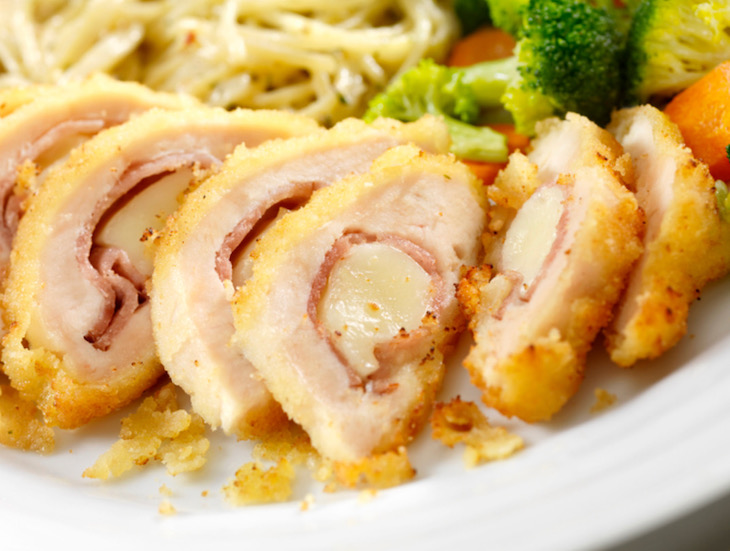The USDA declares Salmonella adulterant in raw breaded stuffed chicken products, after many outbreaks linked to this type of food, including one that occurred in 2021. This will let the USDA make sure that these products, which can be “highly contaminated” according to the press release, will not be sold to consumers when Salmonella is found in them.

Since 1998, raw breaded stuffed chicken products have been associated with up to 14 outbreaks and at least 200 illnesses. These products are sold frozen and include products like chicken cordon bleu or chicken Kiev. The chicken appears cooked because the breading is brown, but they are sold raw and must be cooked to 165°F before consumption.
They are heat-treated only to set the batter or breading. Companies have improved their product labeling, including warnings like “raw” and “cook thoroughly before serving,” but those efforts have not been effective at reducing illness. One of the problems is that the breading can fall off the chicken before it’s cooked and will cross-contaminate other foods and surfaces in the kitchen.
These breaded and stuffed chicken products will be considered adulterated when they exceed a very low level of Salmonella contamination and would be subject to regulatory action. FSIS is proposing that the limit be set at 1 colony forming unit (CFU) of Salmonella bacteria per gram for these products. The USDA believes that this level will significantly reduce the risk of illness from consuming these items.
The USDA is seeking comments on whether a different standard for adulteration would be more appropriate. Those standards could include zero tolerance or one that is based on specific Salmonella serotypes. The notice will be published in the Federal Register in the fall of 2022.
This action is part of FSIS’ efforts to reduce Salmonella illnesses associated with poultry. The government agency has been gathering information by meeting with stakeholders, asking for recommendations from food safety experts, and gathering ideas for pilot projects.




